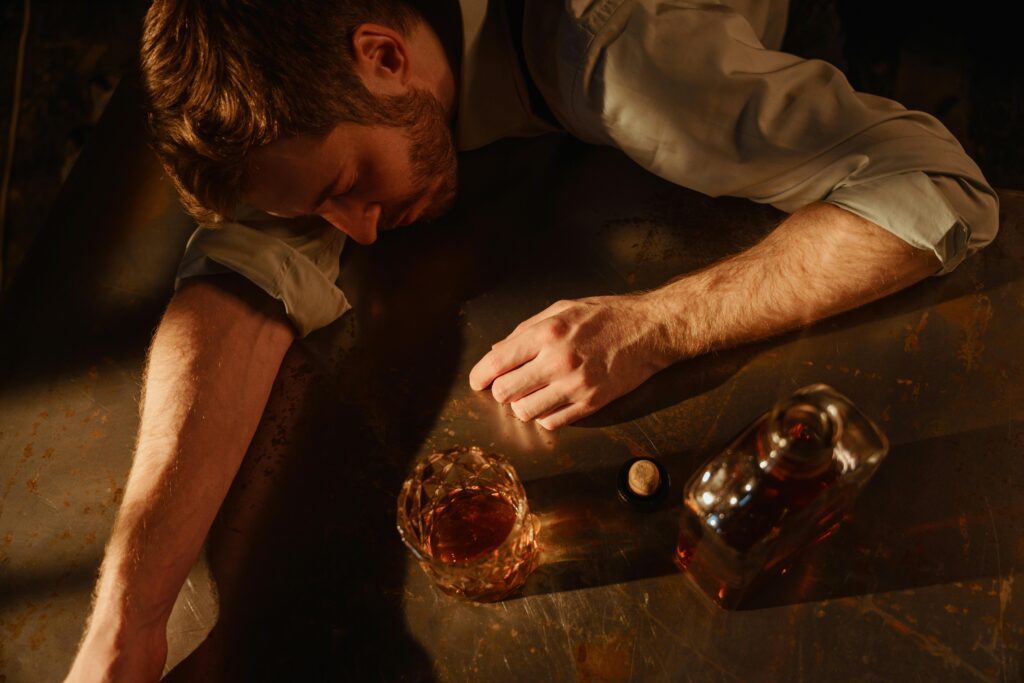Uncover the path to lasting recovery. Learn how modern addiction treatment programs can transform your life.
Addiction can feel like you’re stuck in a never-ending storm—relentless and overwhelming. If you’re reading this, you’re probably looking for some hope, some direction. You’re not alone. Whether it’s you or someone you care about, the road to recovery might seem daunting, but it’s also full of possibility.
If you’re someone who’s actually living this struggle and you’re apprehensive about the process, this article will help allay your fears about recovery. Furthermore, if you’re someone whose loved one is the one struggling, knowing about the process and the treatments available will give you some peace of mind that your family member is in safe hands.
Let’s talk about what that journey looks like, step by step.
The Prevalence of Addiction in Richmond, VA
Richmond struggles with the weight of addiction, just like any city. It’s not always visible but it encroaches in the lives of people and families. In fact, the city of Richmond has dealt with a drug overdose crisis in the past years; with a total of 215 fatal opioid overdose cases in 2019 and 2020.
If you’re someone who experiences it personally, it’s extremely difficult to handle. For a family member of someone who struggles with it, it’s painful to watch.
It’s easy just to give up and make it a story of heartbreak. But you can make it a story of resilience. Every day, people in Richmond are asking for help. They’ve decided to reclaim their lives and prove that recovery is possible. One step at a time, hope is growing stronger in this community.
Understanding Addiction

Addiction is a complex condition that affects both the mind and body. To truly address it, we need to look beyond the surface, diving into the science, the misconceptions, and the profound ways it impacts individuals and their loved ones. By understanding addiction, we can replace judgment with compassion and take the first steps toward meaningful recovery.
The Science Behind Substance Use Disorders
Addiction is about biology. Your brain has a built-in reward system that makes you feel good when you accomplish something. Substances like drugs and alcohol take advantage of that system and make you feel good without the accomplishment part.
At first, it’s exhilarating. But later, your brain stops rewarding the accomplishments entirely and just craves the substance. Willpower has nothing to do with it. Your brain is crying out for something it’s been trained to depend on.
Common Misconceptions About Addiction
Let’s clear up some common misconceptions about addiction.
- “Addiction is just a bad habit.” No, it’s a medical condition that changes how the brain functions.
- “Only certain people get addicted.” Addiction doesn’t care about your background, education, or bank account—it affects all kinds of people.
- “You can quit if you really want to.” Sure, determination helps, but most people need professional support and a plan to break free.
Understanding these truths helps us approach addiction with compassion, not judgment.
The Impact on Individuals, Families, and Communities
Addiction doesn’t just hurt the person using—it ripples out, touching everyone around them. Families often feel the brunt of it, watching someone they love struggle while wondering what they can do. Communities, too, bear the weight in lost productivity, strained resources, and the heartbreak of lives interrupted.
But here’s the good news: when someone takes that step toward recovery, the healing spreads just as far. Families reconnect. Communities rebuild. Hope returns.
The First Step: Medical Detoxification
All journeys start somewhere. For this, detox is the beginning.
What is Medical Detox?
Detox is like hitting the reset button, but it’s not as simple as “flushing out” substances. It’s the first big hurdle, where your body starts adjusting to life without drugs or alcohol. This process can be tough—withdrawal symptoms like nausea, anxiety, or shakes can make it feel impossible to keep going.
That’s why medical detox exists. With professionals by your side, you’re not just white-knuckling through it. You’re supported, cared for, and kept safe.
Preparing for the Next Phase of Treatment
Think of detox as the first chapter, not the whole story. Once your body is free from substances, the real work begins—digging into the why behind your addiction and building the tools to stay on track.
Comprehensive Inpatient Treatment: Laying the Foundation
Inpatient treatment provides a safe and structured environment where recovery becomes the focus. It’s the cornerstone of healing, offering the time, tools, and support needed to build a strong foundation for lasting sobriety.
The Benefits of a Structured Environment
Sometimes, you need a clean slate—a space where you can focus entirely on recovery without distractions or triggers. That’s what inpatient treatment offers. It’s a chance to pause, reflect, and rebuild in a supportive environment.
Addressing Co-Occurring Disorders
It’s unfair to assume that people are addicted just because they lack self-control. For many people, there are underlying reasons why they resorted to addiction. If there’s no effort to find out what those reasons are (Co-Occurring Disorders), getting sober won’t be of any use. They might go back to their old habits. Treat the disease AND the symptom.
Partial Hospitalization Program (PHP): Bridging the Gap
What comes next after detox will depend on you and your counselor. There are several treatment choices you can make and one of them is PHP or Partial Hospitalization Program (PHP).
PHP is like having a solid safety net while you’re learning to find your balance in recovery. During the day, you get the intensive support and guidance you need—therapy sessions, coping tools, and a structured routine to keep you on track. But at night, you head back home or to a sober living facility, where you can start practicing what you’ve learned in a real-world setting.
It’s the perfect middle ground for those stepping down from inpatient care or anyone who needs more structure than a typical outpatient program can provide. PHP gives you the support to move forward confidently, one day at a time, without feeling like you’re navigating recovery on your own.
Intensive Outpatient Program (IOP): Balancing Recovery and Real Life
Your second treatment option would be an Intensive Outpatient Program (IOP). It’s a bit different from PHP.
Life goes on even when you’re trying to recover. It’s in these situations when an Intensive Outpatient Program (IOP) can help you a lot. You can get the therapy and support you need while still managing work, school, or family commitments.
IOP is all about balance. It’s flexible enough so your life isn’t disrupted too much, but it stays focused on helping you recover. The main goal is to develop skills and resilience to create a life you’re excited to wake up to.
Aftercare and Sober Living: Sustaining Recovery
When you’re nearing the end of your journey, all you need is to maintain your changed lifestyle. But, it’s important not to take your foot off the gas. You have to take advantage of your newfound sobriety.
The Importance of Ongoing Support
Recovery isn’t a finish line—it’s a journey. Aftercare programs and sober living facilities help you stay steady, offering guidance and community when life gets tough.
Sober Living Options in Richmond, VA
Think of sober living as a stepping stone back to independence. These homes provide structure and accountability while giving you the space to practice new habits in a supportive setting.
Living in these drug- and alcohol-free spaces offer accountability, peer support, and a sense of community that helps reinforce healthy habits. Whether you’re stepping down from inpatient care or seeking additional stability during recovery, sober living is an excellent way to practice life skills and maintain momentum on your path to long-term sobriety.
Skypoint Recovery’s Commitment to Personalized Care
Recovery is about finding what works for YOU. At Skypoint Recovery, we understand that no two journeys are alike. Whether it’s detox, therapy, or aftercare, we help people not just to survive but to thrive.
Your Journey with Skypoint Recovery
If you’ve made it this far, you’re already taking a step in the right direction. Skypoint Recovery in Richmond, VA, is here to walk with you, offering personalized care every step of the way. They’ll help you reclaim your life—one day at a time.
Skypoint Recovery stands out in Richmond, VA, with its commitment to personalized care, evidence-based therapies, and a holistic approach to addiction treatment. We offer a comprehensive continuum of care, including:
- Partial Hospitalization Program (PHP): A bridge between inpatient and outpatient care, offering intensive treatment with increased independence.
- Intensive Outpatient Program (IOP): Flexible treatment for those balancing work, school, or family commitments.
- Aftercare Planning: Ongoing support and resources to maintain sobriety and prevent relapse.
- Family Therapy and Education: Programs to help families heal and support their loved ones in recovery.
- Holistic Therapies: A range of activities to promote overall well-being, including book therapy, meditation, art therapy, and more.
Call 855-612-3488 or fill out our confidential online form today. Let’s get started on your path to healing.
Related Blogs
-
Endorphins vs Dopamine: How These Chemicals Affect Your Mood and Motivation
-
Understanding Amitriptyline Withdrawal: From Flu-Like Symptoms to Mood Changes
-
M365 White Pill: Prescription Painkiller Benefits and Potential Dangers
-
What Is Flakka and Why is it Called the Zombie Drug?
-
Understanding Ketamine Addiction: Causes, Symptoms, and Effective Treatment Options


Start Your Personalized Recovery Journey Now









